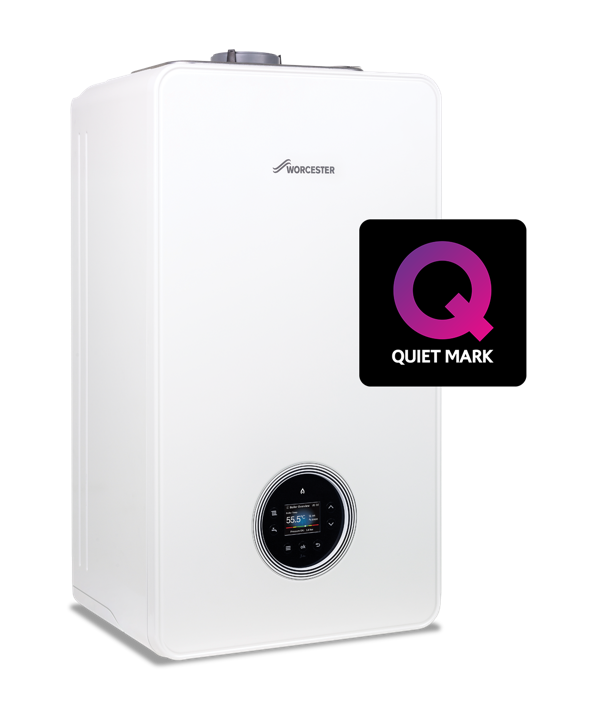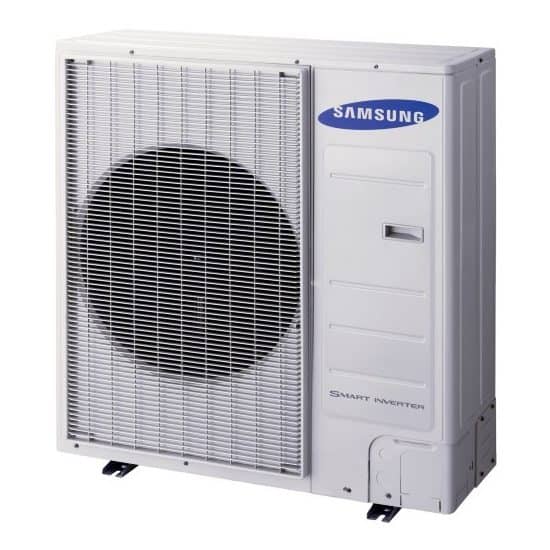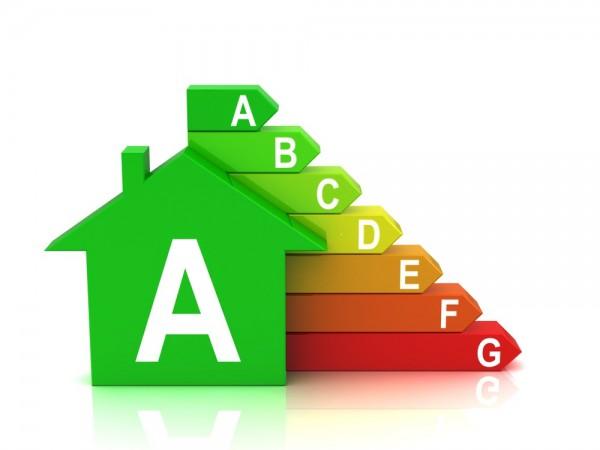You may have heard that gas boilers are going to be banned in the UK and heat source pumps are the future. Whilst this is mostly incorrect, it is partly true that boilers that run solely on gas will no longer be able to be installed in new build homes.
Gas boilers will be continued to be installed, but only if they are hydrogen ready and can run on 20% hydrogen. Air source heat pumps are the other option proclaiming to be the way forward, however, so let’s take a look at which is the best option.
Hydrogen Boiler vs Heat Pump: Which is the Best Option?
What are Hydrogen Ready Boilers and Air Source Heat Pumps?
Hydrogen ready boilers are an innovative type of boiler designed to run on a blend of natural gas and hydrogen, with the capability to switch entirely to hydrogen in the future.
This transitional technology allows households to continue using their existing gas infrastructure while significantly reducing their carbon footprint.
Compared to traditional gas boilers, hydrogen ready boilers can cut carbon emissions by up to 80%, making them a more environmentally friendly option.
On the other hand, air source heat pumps are a type of renewable energy technology that harnesses heat from the air to provide warmth and hot water for homes.
These systems work by extracting heat from the outside air, even in cold temperatures, and transferring it to a refrigerant, which is then used to heat the home.
Air source heat pumps are highly efficient and capable of delivering up to four units of energy for every unit of electricity used to power them.
This makes them an excellent choice for those looking to reduce their reliance on fossil fuels and lower their carbon emissions.
Hydrogen boilers are the best option.
In short, when compared, hydrogen boilers vs heat pumps, hydrogen boilers come out on top. Air source pumps just can’t keep homes warm enough without having a radiator on at least 2 walls in each room, which is impossible in some properties, as well as costly.
The other option for air source heat pumps is underfloor heating which is another expense. This is before you have even taken into consideration the huge initial cost of heat pump installation, new boilers cost much less.

Why hydrogen boilers?
A hydrogen-ready boiler will cost you around £600 and is ready with a few small part changes to run totally on hydrogen.
There are other outside factors such as the cost of farming hydrogen and it may not be viable as of yet, but with technology advancing all the time, it is only a matter of time till it is.
However, blue hydrogen, produced from fossil fuels with carbon capture technology, faces economic and environmental challenges.
The feasibility and sustainability of blue hydrogen are questioned due to methane leaks and the limitations of current carbon capture processes.
There is a huge investment from Governments and trials across the globe for hydrogen power. Buses and plant machinery are currently using it safely and effectively.
Hydrogen boiler vs Hydrogen Heat Pump
Hydrogen boilers and hydrogen heat pumps vs heat pumps represent innovative approaches to reducing carbon emissions and transitioning to cleaner heating technologies.
Hydrogen boilers operate by burning hydrogen gas to generate heat, functioning similarly to traditional gas boilers but emitting only water vapor as a byproduct.
While hydrogen heating may offer a potential transition from fossil fuels, it is currently less efficient and more expensive than heat pumps for reducing carbon emissions and meeting the UK’s heating requirements.
They offer a direct replacement for existing heating systems and provide a convenient transition to hydrogen-based heating.
On the other hand, hydrogen heat pumps utilise hydrogen as an energy source to power the heat pump, extracting heat from ambient air, ground, or water sources.
Hydrogen backed by governments and boiler companies
Hydrogen power is seen as the key not just in the UK but across the world. The UK government has spent millions looking into Hydrogen and there are currently plans for domestic tests in certain areas in the UK to test Hydrogen in homes as a fuel source.
The top boiler brands and companies such as Worcester Bosch, Viessmann, and Ideal have spent millions of pounds on developing Hydrogen boilers that are capable of using this zero-emission fuel.
List of hydrogen-ready boilers:
- Viessmann Vitodens 050-w
- Worcester Bosch 4000
- Worceter Bosch 2000
- Viessmann Vitodens 100-w
- Ideal Logic
- Worcester Bosch 8000
You can get all these Hydrogen ready boilers, including installation at Easy Boilers. You can also get a fixed price quote and book your installation date, all online in under 20 seconds.
Gas boilers v heat pumps – Pros and cons of choosing between the two
As we have said, there are pros and cons to the gas boiler and the heat pumps, but if you are looking for a certain aspect of each to decide which is best for your home in the future, then we have broken down into smaller segments these 2 heating units.
When comparing energy efficiency, it is important to note that power hot water boilers powered by green hydrogen are significantly less efficient than heat pumps.
This is because hot water boilers require more overall energy to meet heating needs compared to the direct electricity use in heat pumps.
Energy Efficiency and Carbon Emissions
When it comes to energy efficiency, hydrogen ready boilers and air source heat pumps offer different advantages. Hydrogen ready boilers have an energy efficiency of around 90%, similar to traditional gas boilers.
However, their efficiency can drop to about 80% when running on 100% hydrogen. In contrast, air source heat pumps boast an impressive average energy efficiency of 300-400%, making them a highly efficient option for heating homes.
In terms of carbon emissions, hydrogen ready boilers can reduce emissions by up to 80% compared to traditional gas boilers. However, the carbon footprint of hydrogen production varies depending on the method used.
Green hydrogen, produced using renewable energy, is the most environmentally friendly option. Air source heat pumps, on the other hand, produce zero carbon emissions at the point of use, making them an attractive choice for those looking to minimize their environmental impact.

Benefits of Hydrogen ready gas boilers
- Unrivalled heating power and capabilities
- Capable of running on part hydrogen to lower greenhouse gasses
- Currently cheap to run and maintain
- Low installation costs
- Ready for switch to hydrogen fuel easily
- Zero emissions once fully powered by hydrogen
- Twice as economical as gas boilers so less hydrogen required
- Hydrogen can be pumped into the current gas network
Benefits of Air Source Heat Pumps
- Low co2 emissions
- Renewable heat incentive grants
- Can be used for heating and cooling
- Highly efficient
- Long lifespan
- No fuel storage
Disadvantages of Hydrogen ready gas boilers

- Hydrogen is currently expensive to farm
- The current gas network will need to be made safer
- Storage of hydrogen is currently difficult
- Won’t be ready for another 15 years
Disadvantages of Air Source Heat Pumps
- Cost over £5,000 just to install and are very large
- Very low heat supply
- Requirement for underfloor heating or 2 or more radiators in each room
- Home has to be very well insulated
- Lower yearly savings compare to gas
- Can be very noisy
- Large amount of space needed outside home and an eyesore
Future of Hydrogen Boilers
The future of hydrogen boilers holds promise but is still uncertain. While they offer a potential solution for reducing carbon emissions, several challenges need to be addressed.
These include the high cost of hydrogen production, the lack of infrastructure, and the need for significant investment in research and development.
In contrast, air source heat pumps are a well-established technology that has been widely adopted in many countries.
They provide a highly efficient and environmentally friendly solution for heating homes, and their popularity is expected to continue growing in the coming years.
As the UK and other countries transition to a low-carbon economy, air source heat pumps are likely to play a significant role in reducing carbon emissions from domestic heating.
While hydrogen boilers may have a role in the future, particularly in specific applications like industrial processes or transportation, their widespread adoption for domestic heating may be limited by the current challenges in hydrogen production and infrastructure.
Real-World Applications of Hydrogen Boilers and Heat Pumps
Hydrogen boilers and heat pumps are both being explored as viable alternatives to traditional gas boilers for domestic heating. In the real world, these technologies are being implemented in various innovative ways.
Hydrogen boilers are currently being tested in pilot projects, such as the UK’s “Hy4Heat” program. This initiative aims to demonstrate the feasibility of hydrogen-powered heating in homes by installing hydrogen boilers and monitoring their performance, efficiency, and safety.
These pilot projects are crucial for understanding how hydrogen boilers can be integrated into existing gas infrastructure and their potential to reduce carbon emissions.
On the other hand, heat pumps are already widely used in many countries, including the UK, where they are seen as a key technology for reducing carbon emissions from heating.
Heat pumps are being installed in new-build homes and retrofitted into existing homes, with many homeowners taking advantage of government incentives to switch to this more efficient and environmentally friendly technology.
In terms of real-world applications, heat pumps are being used in a variety of settings, including:
- New-build homes: Heat pumps are increasingly being installed in new-build homes, particularly in areas with a high demand for low-carbon heating solutions.
- Retrofitting existing homes: Many homeowners are retrofitting heat pumps into their existing homes to benefit from their high efficiency and low carbon emissions.
- Commercial buildings: Heat pumps are also being used in commercial buildings, such as offices and schools, to provide both heating and cooling.
- Industrial processes: In industrial settings, heat pumps are utilized for processes like food processing and manufacturing, offering efficient heating and cooling solutions.
These real-world applications highlight the versatility and effectiveness of heat pumps in reducing carbon emissions and providing sustainable heating solutions.
Heat pump or gas boiler – Deciding which is best for your home
When deciding which is best for your home you need to take all the above into consideration. If you have a new build that is well insulated, has a large amount of space outside, and possible has underfloor heating, then a heat source air mump may be the best option. Whereas if you have a mid-terrace with no garden space or a flat, these just aren’t even an option.

What is the difference in cost between hydrogen ready boilers and heat pumps?
| Hydrogen ready boiler with installation | £1,500 |
| Air source heat pump with installation | £5,000 |
How much does a heat pump boiler cost in the long run?
If you take into consideration that a new gas boiler will save you £300 per year, you could have offset the new boiler cost within 5 years.
Whereas the costs involved with an air source heat pump are that high that the savings will not be seen for a very long time.
If your home isn’t warm enough either you may have to find other ways to heat your home up, for example, electric heating, which defeats the object of the heat pump.
Hydrogen boiler or heat pump conclusion: Hydrogen ready gas boilers are the best option
We firmly believe that Hydrogen ready gas boilers are the future. Electric boilers are also an option but are expensive to run.
Once Hydrogen has become much more easily ascertained and farmed, it will be a cheap and valuable form of zero-emission fuel that will power boilers, cars, buses, and more. You can get your Hydrogen ready boiler now online. All Worcester Bosch boilers are hydrogen.
Next Steps: Moving Forward with Your Heating Choice
If you’re considering switching to a hydrogen boiler or heat pump, there are several next steps you can take to make an informed decision:
- Research, research, research: Start by learning as much as you can about hydrogen boilers and heat pumps. Understand their benefits, drawbacks, and costs to determine which option suits your needs best.
- Assess your energy needs: Evaluate your current energy consumption and heating requirements. This will help you decide whether a hydrogen boiler or heat pump is the best solution for your home or business.
- Consult with a professional: Speak with a professional installer or energy expert to get personalized advice. They can help you understand the installation process, potential challenges, and the best heating solution for your specific situation.
- Explore government incentives: Look into government incentives and grants that may be available to help offset the cost of installing a hydrogen boiler or heat pump. These incentives can make the transition more affordable.
- Consider the long-term benefits: Think about the long-term advantages of switching to a hydrogen boiler or heat pump, such as reduced carbon emissions and lower energy bills. These benefits can make the initial investment worthwhile.
In addition to these steps, consider the following factors:
- Energy efficiency: Assess the energy efficiency of your home or business. Improving insulation, draught-proofing, and other measures can enhance the performance of your chosen heating solution.
- Renewable energy: Explore the potential for integrating renewable energy sources, such as solar or wind power, to provide electricity for your heat pump. This can further reduce your carbon footprint and energy costs.
- Maintenance and upkeep: Understand the maintenance and upkeep requirements of your chosen heating solution. Ensure that you are prepared for any ongoing maintenance needs and that they fit within your lifestyle and budget.
By taking these next steps, you can make a well-informed decision about your heating choice and move forward with confidence, knowing that you are contributing to a more sustainable and energy-efficient future with hydrogen ready boilers, along with Viessmann and Ideal. You can get a quote online now and future-proof your home for less.